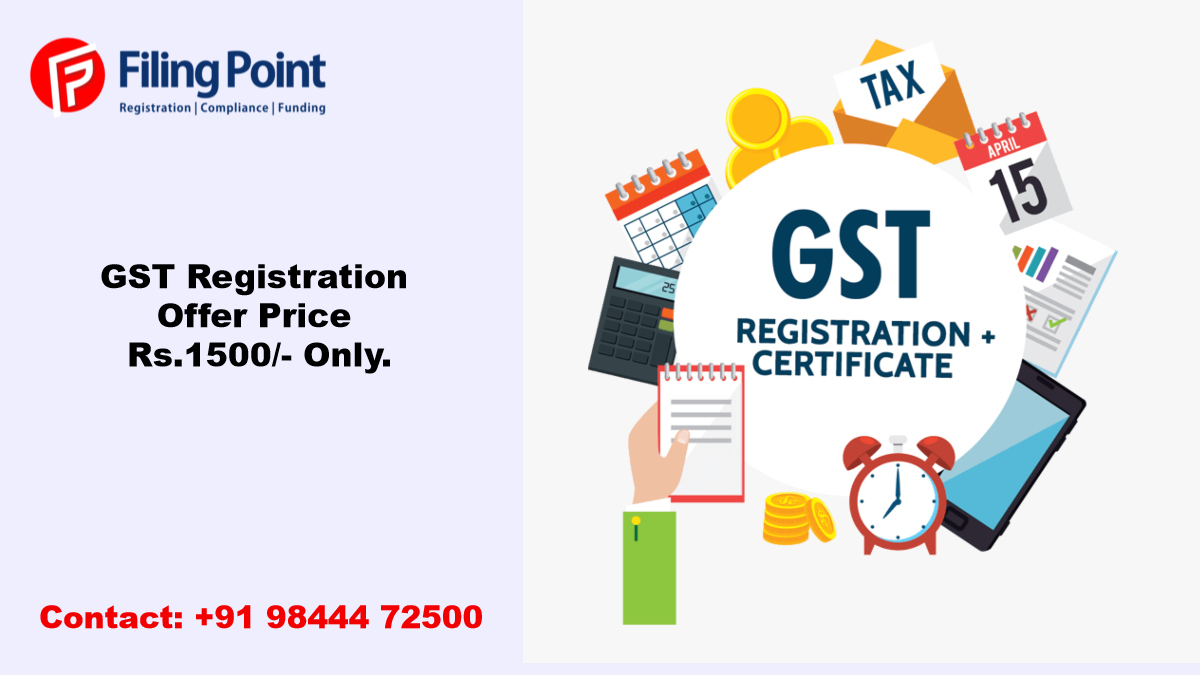How to Find the most effective GST Registration Services in Singapore Swiftly
From Beginning To End: The Ultimate Roadmap to GST Registration for Organizations Seeking Financial Security
Browsing the complexities of Product and Services Tax (GST) registration is a critical step for organizations aiming for economic stability. From recognizing the fundamental concepts of GST to following post-registration guidelines, the procedure can seem discouraging at initial look. However, breaking down the roadmap right into convenient steps can simplify the registration trip for businesses seeking to boost their monetary standing. Let's discover the vital parts that compose this supreme roadmap and find just how each phase contributes to laying a solid foundation for economic success.
Understanding GST Basics
Exploring the essential principles of Product and Provider Tax Obligation (GST) is essential for acquiring an extensive understanding of its implications on businesses and the economy. GST is a value-added tax obligation levied on many goods and solutions for residential usage. It has replaced numerous indirect taxes that existed in the pre-GST era, streamlining the tax obligation framework and boosting simplicity of doing company in India. Under the GST system, both services and items are tired at a certain price, which is identified based on their category. If their yearly turn over exceeds the threshold limitation set by the government, businesses are needed to sign up for GST. Input Tax Obligation Credit Rating (ITC) is a substantial attribute of GST, enabling organizations to declare credit rating for taxes paid on inputs, decreasing the general tax worry. Understanding the essentials of GST is essential for businesses to abide by tax policies, handle their finances effectively, and add to the country's economic development by joining a clear tax obligation system.
Eligibility Standards for Enrollment
To sign up for GST, businesses should fulfill details eligibility criteria established by the federal government. The key eligibility requirement is that any company associated with the supply of products or solutions with an annual accumulation turn over above the threshold limitation established by the authorities need to register for GST. As of the current policies, the threshold limit for GST enrollment is a yearly aggregate turn over of 40 lakhs for companies operating within a state, besides special category states where the restriction is 20 lakhs. Furthermore, certain companies are required to sign up for GST irrespective of their turnover, such as interstate providers, laid-back taxable individuals, and organizations reliant pay tax under the reverse charge device. It is important for businesses to completely analyze their turnover and transaction kinds to identify their GST registration commitments precisely. Failing to register for GST when eligible can lead to fines and legal effects, making it necessary for companies to stick to the specified qualification requirements.
Papers Required for Enrollment
Having actually fulfilled the qualification criteria for GST enrollment, organizations should now ensure they have the requisite documents in location to continue with the enrollment procedure efficiently. The files required for GST enrollment normally consist of evidence of service constitution, such as partnership deed, registration certification, or consolidation certificate for various kinds of services. Additionally, services need to supply documents developing the principal place of organization, such as a rental contract or electrical energy bill.
Step-by-Step Enrollment Refine
Starting the GST enrollment process involves a series of structured actions to make certain a compliant and seamless registration for services. The initial step is to go to the GST site and submit the registration kind with accurate details of the organization entity. Following this, the applicant receives a Momentary Referral Number (TRN) which is used to return to the application procedure if it's not finished in one go.
Next, all called for files according to the list provided by the GST portal requirement to be published. These documents generally consist of proof of service identification, enrollment and address proofs of marketers, economic declarations, and business entity's PAN card.

Post-Registration Compliance Guidelines

Verdict
Finally, organizations looking for monetary stability has to recognize the fundamentals of GST, satisfy eligibility criteria, gather essential files, comply with the step-by-step registration procedure, and abide by post-registration guidelines - Best GST registration services in Singapore. By adhering to these actions, services can guarantee compliance with tax obligation policies and maintain economic stability in the future
In addition, specific businesses are called for to register for GST regardless of their turn over, such as interstate suppliers, informal taxable persons, and services responsible to pay tax obligation under the reverse charge system.Having fulfilled the eligibility standards for GST registration, businesses need to now guarantee they have the requisite records in area to continue with the registration procedure efficiently. The papers required for GST enrollment usually consist of proof of their explanation organization constitution, such as partnership action, enrollment certificate, or unification certificate for various kinds of companies. In addition, companies need to offer records establishing the principal location of business, such as a rental agreement or power bill.Beginning the GST enrollment procedure involves a series of organized actions to ensure a certified and smooth registration websites for companies.